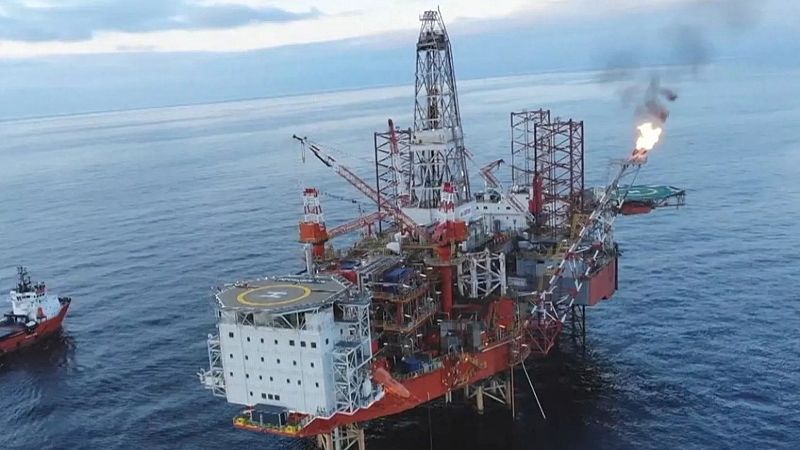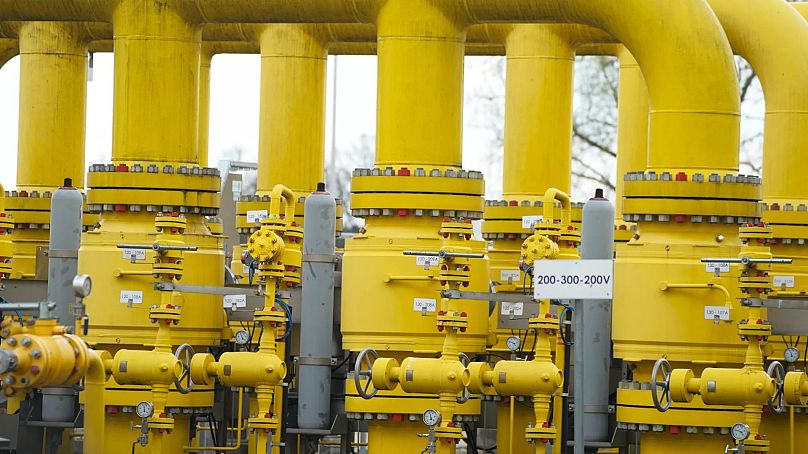Central European Petroleum (CEP) has revealed the biggest oil find in Poland’s history, located close to Wolin Island.
Located approximately six kilometers from Świnoujście, a port city on the Baltic Sea in northwest Poland, the well has the capacity to store 22 million tonnes of recoverable crude oil and condensate, as well as 5 billion cubic meters of commercial-grade natural gas.
The larger concession zone, covering 593 square kilometers, is believed to hold more than 33 million tons of oil and condensate, along with 27 billion cubic meters of natural gas.
This would more than double Poland’s existing oil reserves, which were approximately 20.2 million tons in 2023, as reported by the Polish public broadcaster TVP.
On Monday, CEP stated that Poland would be the first to gain advantages from the oil and gas it extracts.
“This is a form of absurdity” Piotr Woźniak, former CEO of the Polish oil and gas company Polskie Górnictwo Naftowe i Gazownictwo (PGNiG), stated in an interview with Euronews.
Based on 2019 figures, PGNiG generated 1.2 million tons of oil both within Poland and internationally.
“The main focus is neither Poland, nor Russia, nor Sudan or the Ivory Coast. The priority goes to the party that discovers the mineral. If this company makes the discovery, it takes precedence over everyone else. However, it must first record the deposit. This is what European law specifies,” Woźniak stated.
“They prioritize money over any country. They have the freedom to sell it to anyone they choose. Naturally, due to various international factors, they can’t sell it to the Russians or the Medellin cartel in Colombia, as that would cause widespread anger,” he added.
Showcasing oneself in front of a potential customer
Woźniak mentioned that the CEP is likely to seek financing at the earliest opportunity.
“It must record the deposit of its own to ensure it holds full rights to it and the legal authority to extract it. It needs to drill, and to drill, it must invest money,” he said.
“They’re somewhat displaying their presence here in front of a potential buyer, as they are aware that we [in Poland] aim for a variety of sources, and that we are relying on — according to the reasoning provided by the government administration — our own resources,” Woźniak added.
“They deserve praise since it is uncommon to see such numbers, making it even more of a reason to commend them,” said the former CEO of PGNiG.
Woźniak criticized the slow performance of the Polish state-owned company Orlen, which acquired PGNiG in 2022 and had the opportunity to reveal the resources that CEP is now able to extract.
“Orlen has not extracted a single cubic meter of gas or a single barrel of oil in Poland. For 14 years, they did nothing, clearly receiving large sums of money, regardless of which government was in power, whether the first, the second, or the third. Nothing came out of it,” he says.
“How did a company as small as CEP, which could fit in a liquor glass, uncover vast resources, and where was the state at that time?” asks Wozniak rhetorically, referring to Orlen.
Will it be beneficial to gain independence from Russia?
As per Woźniak, the retrieval of resources from the wells identified by CEP will not significantly impact the European energy landscape. However, Poland itself could have such an effect, he mentioned.
The reserves could amount to 22 million tonnes of oil, and, as the expert highlighted, “the processing capability of Polish refineries is approximately 24 million tonnes of crude oil annually, which is the quantity we can handle within Poland’s territory.”
A Polish energy analyst and journalist, Wojciech Jakóbik, stated to Euronews that “from the perspective of a significant energy strategy — this is not a breakthrough.”
“But from the perspective of investment in the Baltic Sea — yes, as it is several times greater than what we are currently extracting from the Baltic Sea,” Jakóbik stated.
It is also a favorable investment indication that there may be additional such deposits, suggesting it is worthwhile to search for raw materials within our region, so who knows, perhaps there will be further updates from other investors.
Investors are now searching for hydrocarbons across Europe. Poland is not alone in this effort. For instance, we hear that Germany, working with the Netherlands, aims to extract hydrocarbons in the North Sea and further afield.
“This serves as additional proof that there is a shift occurring in Europe. Stricter security measures are prompting us to reconsider and view the extraction of gas and oil within Europe more positively,” Jakóbik added.








